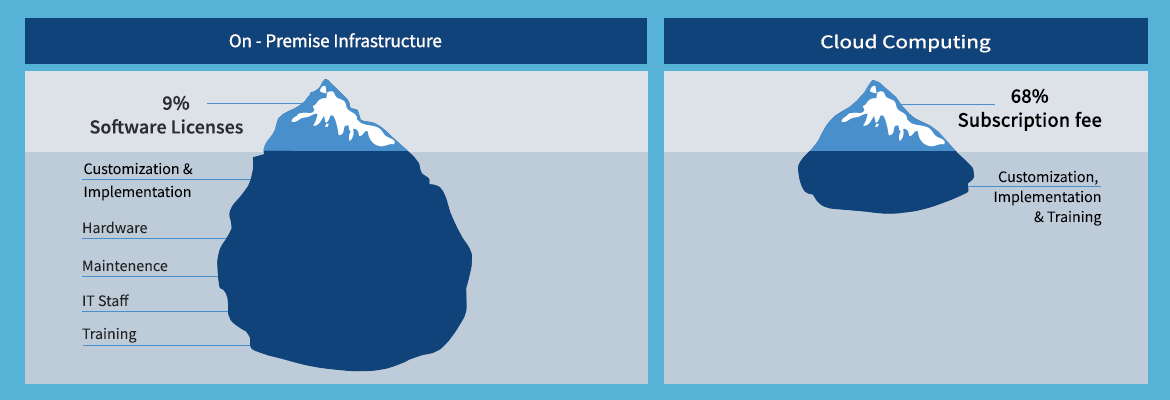Cloud computing is accessing your storage and software via the internet instead of on-premises. Many organizations are moving their technological infrastructure to the cloud to launch new business models, streamline operations, and find new ways to manage and analyze data.
Moving your business to the cloud has numerous benefits. Here are the top ten reasons moving ERP, CRM, and other business software to the cloud makes sense.

